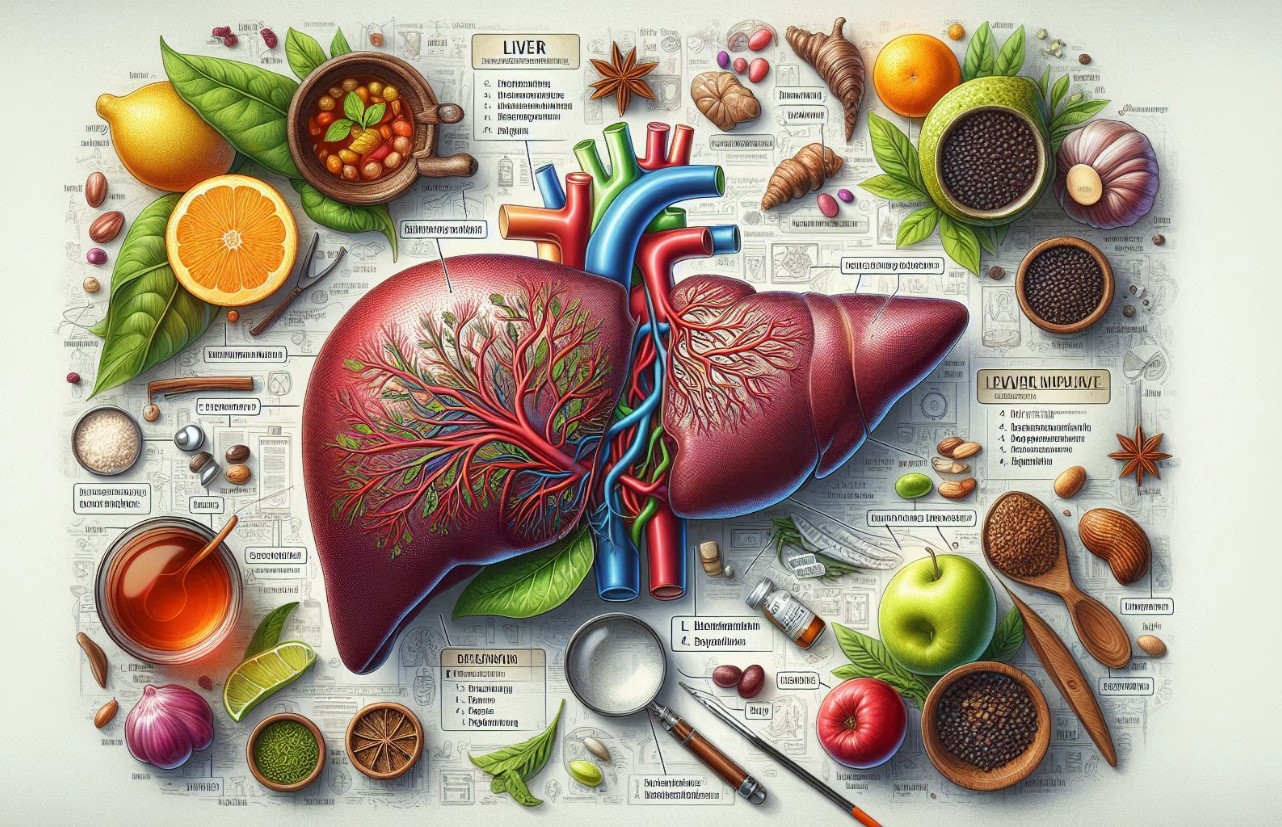The liver is one of the body’s most vital organs, acting as a chemical processing plant that detoxifies our blood, helps digest food, and stores energy. So, what happens when things go awry? Liver problems can severely impact not only your health but also your quality of life. Understanding the causes and remedies for liver issues is essential for anyone who wants to keep their liver in tip-top shape.[/vc_column_text][/vc_column][/vc_row]
Common Causes of Liver Problems
Liver problems can arise from a variety of factors, and it’s essential to know what they are to prevent potential issues.
Alcohol Abuse
Let’s kick things off with perhaps the most well-known villain—alcohol. Heavy drinking can lead to liver inflammation, ultimately resulting in conditions like fatty liver disease and even cirrhosis. Think of your liver as a sponge; soak it with too much alcohol, and it becomes likely to develop nasty issues.
Hepatitis
Next, we have hepatitis, an inflammation of the liver often caused by viral infections. There are several types, but Hepatitis A, B, and C are the most common. Each type has different transmission methods and impacts on health.
Fatty Liver Disease
Fatty liver disease involves the accumulation of fat in liver cells. Sounds harmless, right? Wrong. It can lead to severe liver damage.
Types of Fatty Liver Disease
- Non-Alcoholic Fatty Liver Disease (NAFLD): Often linked to obesity and metabolic syndrome.
- Alcoholic Fatty Liver Disease (AFLD): Linked specifically to heavy alcohol use.
Medications and Toxins
Ever thought about your daily meds? Some can put your liver at risk. Compounds in certain medications can be toxic to the liver if not managed correctly. Additionally, everyday toxins like industrial chemicals can also contribute to liver damage.
Genetic Factors
Sometimes, genes are to blame. Conditions like hemochromatosis and Wilson’s disease can severely impact liver function. If there’s a family history of liver problems, it’s best to get screened.
Autoimmune Disorders
In autoimmune liver disorders, your body’s immune system mistakenly attacks your liver. Conditions like autoimmune hepatitis can lead to severe inflammation and scarring of the liver tissue.
Obesity and Sedentary Lifestyle
With today’s fast-paced lifestyle, being couch-bound is common. But did you know a sedentary life can lead to obesity, increasing the risks of fatty liver disease and liver dysfunction?
Diabetes and Cholesterol Issues
Struggling with diabetes or high cholesterol? Then you’re at a higher risk for liver problems. These conditions often go hand-in-hand with liver disease, making it essential to manage them effectively.
Symptoms of Liver Problems
So, how do you know if your liver is waving the red flag? Let’s break down the signs.
Early Signs
Look out for subtle signs like fatigue, slight yellowing of the skin (jaundice), or abdominal discomfort. You might dismiss them as simple fatigue, but these can be early indicators of liver distress.
Advanced Symptoms
In more advanced stages, symptoms can include severe jaundice, swelling in the abdomen and legs, and confusion or difficulty concentrating. If you or someone you know experiences these, it’s crucial to seek medical help immediately.
Diagnosing Liver Problems
Recognizing symptoms is one thing, but diagnosing the issue accurately requires a more systematic approach.
Blood Tests
The first step typically involves blood tests to check liver enzyme levels, proteins, and bilirubin in your blood. Elevated levels can indicate problems.
Imaging Tests
Doctors might also use imaging tests like ultrasounds or MRIs to get a better look at your liver’s shape and structure.
Liver Biopsy
In some cases, a liver biopsy may be necessary. This procedure involves taking a small sample of liver tissue to analyze for damage or disease.
Remedies for Liver Problems
Now that we’ve laid out the causes and symptoms, let’s talk about how to remedy these issues.
Lifestyle Changes
Diet Modifications
Your plate plays a massive role in liver health. Reducing sugar intake, avoiding processed foods and trans fats, plus loading up on greens, lean proteins, and whole grains can make wonders for your liver.
Exercise and Physical Activity
Getting off the couch and moving around is critical. Aim for at least 150 minutes of moderate exercise each week to help maintain a healthy weight and liver function.
Natural Remedies
Herbal Supplements
Some herbal remedies, such as milk thistle, have shown promise in promoting liver health. However, one should always consult a healthcare professional before starting any new supplement.
Home Remedies
Simple things, like staying hydrated and incorporating turmeric into your meals, can also support liver functions and promote healing.
Medical Treatments
Medications
For diagnosed liver diseases, there may be specific medications that can aid in treatment. For instance, antiviral drugs are often prescribed for hepatitis.
Surgical Options
In severe cases, surgical interventions may be necessary, including procedures that remove certain damaged areas of the liver or even a liver transplant.
Preventive Measures for Maintaining Liver Health
An ounce of prevention is worth a pound of cure! Here are some easy measures to take.
Regular Check-Ups
Schedule regular check-ups with your doctor, especially if you fall into a high-risk category. Regular blood work can help catch issues early.
Vaccinations
Vaccinations for hepatitis A and B can go a long way in protecting your liver. Don’t skip these vaccines if you’re at risk!
Healthy Lifestyle Choices
Lastly, making healthy lifestyle choices—eating well, exercising regularly, and avoiding excessive alcohol—plays a major role in maintaining liver health.
Conclusion
Liver problems don’t have to be a one-way street leading to doom and gloom. By understanding the causes and remedies for liver issues, you can take charge of your health and steer clear of potential problems. Remember, adopting a healthy lifestyle today can lead to a thriving liver tomorrow!
FAQs
- What are the early signs of liver problems?
- Early signs may include fatigue, jaundice, and abdominal discomfort.
- Can liver problems be reversible?
- Yes, many liver issues can be managed or even reversed, especially with lifestyle changes.
- How often should I get my liver checked?
- If you’re at risk, regular check-ups every 6-12 months are recommended.
- Is alcohol the only cause of liver problems?
- No, there are numerous causes including viruses, genetics, medications, and obesity.
- Are there home remedies for liver health?
- Yes, staying hydrated and consuming foods like turmeric can support liver health.





